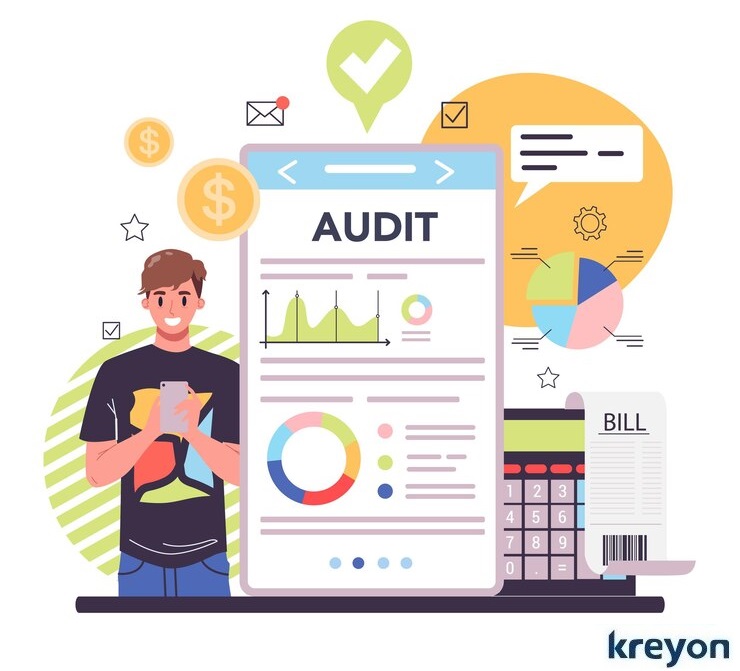How to implement Accounts Payable Automation

As world of business increases its online footprints, organizations are constantly seeking ways to enhance efficiency, reduce costs, and improve accuracy in their financial operations. One powerful solution gaining momentum is the implementation of a paperless accounts payable automation.
This strategic move not only aligns with the global trend toward digital transformation but also promises numerous benefits, including streamlined workflows, faster processing times, and heightened data security.
Understanding the Need for Change
Before delving into the implementation process, it’s crucial to understand why a shift toward paperless accounts payable is necessary. Traditional accounts payable processes, reliant on paper invoices, manual data entry, and physical approvals, are prone to errors, delays, and increased operational costs.
Adopting a paperless approach not only addresses these challenges but also positions businesses to thrive in an increasingly digital landscape.
Assessing and Planning

The first step in transitioning to a paperless accounts payable process involves a comprehensive assessment of the current workflow.
Identify pain points, bottlenecks, and areas where automation can bring about substantial improvements. Set clear objectives, such as reducing processing time, minimizing errors, and optimizing resource utilization. Allocate a budget and gather the necessary resources for a smooth implementation.
Accounts Payable Automation
AP Automation Software streamlines the entire AP process – from invoice capture and coding to approvals and payments. Look for features like automated workflows, data extraction, and integrations with your existing accounting system.
Selecting the right accounts payable automation software is pivotal to the success of the paperless transition.
Look for features that align with your business needs, such as invoice scanning, Optical Character Recognition (OCR), workflow automation, and compatibility with your existing accounting system. Cloud-based solutions offer scalability, accessibility, and the advantage of easy integration.
Document Digitization
To pave the way for a paperless future, it’s essential to digitize existing paper documents. Utilize scanning technology to convert paper invoices and supporting documents into digital formats. Optical Character Recognition (OCR) technology can assist in extracting data from scanned documents accurately.
Establish a centralized digital repository or document management system to securely store and organize electronic documents.
Workflow Automation
Manual approval processes can be time-consuming and error-prone. Implement workflow automation to streamline the approval process.
Configure the system to automatically route invoices through the approval hierarchy, and set up notifications to ensure timely approvals. Replace manual routing of physical documents with electronic routing, significantly reducing processing times.
Automated Approvals & E-Invoicing

Encourage suppliers to submit electronic invoices to further eliminate paper from the accounts payable process. Work with suppliers to transition from traditional paper invoices to electronic formats.
Electronic Data Interchange (EDI) and e-invoicing platforms can facilitate seamless electronic invoicing, improving the overall efficiency of the accounts payable process.
Customize your AP automation software to automate repetitive tasks like data entry and routing for approvals.
Integration with Accounting Systems
Seamless integration between the accounts payable system and your Enterprise Resource Planning (ERP) or accounting software is crucial.
Real-time data synchronization reduces the risk of data entry errors and ensures that financial information is up-to-date. Verify that the selected software is compatible with your existing systems and can facilitate smooth integration.
Security & Fraud Measures
With the digitalization of financial processes comes the need for robust security measures. Implement data encryption protocols to safeguard sensitive financial information.
Define user roles and permissions to control access, ensuring that only authorized personnel can access critical data. Establish a comprehensive security framework to protect against potential cyber threats.
Using AI based automation allows detection of fraudulent supplier messages, the AI software can detect the anomalies in vendor accounts, locations etc. The intelligence can prevent organisations from making any unwanted or incorrect payments.
Implementation Considerations

Before a full-scale implementation, conduct thorough testing of the paperless system. Identify and rectify any issues that may arise during testing. Consider implementing the paperless accounts payable process on a smaller scale as a pilot phase to address unforeseen challenges before a complete rollout.
Transitioning to a paperless accounts payable process necessitates the proper training of employees. Develop comprehensive training programs to familiarize staff with the new system and its functionalities.
Address any concerns or resistance through effective change management strategies. Communicate the benefits of the paperless approach to create a positive attitude toward the transition.
Post-implementation, monitor the performance of the paperless accounts payable process regularly.
Gather feedback from users and stakeholders to identify areas for improvement. Utilize data analytics to gain insights into the efficiency of the process and continuously optimize workflows for enhanced performance.
Conclusion
Implementing a paperless accounts payable automation is a strategic move toward modernizing financial operations, reducing costs, and improving overall efficiency.
By following these comprehensive steps, businesses can navigate the transition successfully, unlocking the full potential of a digitalized accounts payable system.
Embracing the paperless future not only streamlines financial processes but also positions organizations to thrive in an increasingly digital and competitive business environment.
Kreyon Systems accounting solutions are employed by businesses with global operations. If you need any support for accounts payable automation or have queries, please get in touch with us.
